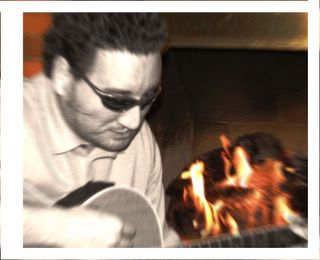Most everyone knows by now that Marvelyne and I are living in New York. Most everyone knows it’s because I’m going to grad school. Some may even be able to state that my area of study is an M.S. in Narrative Medicine. But, over the last year or more, I don’t believe there have been more than a handful of folks who actually know what narrative medicine is. And frankly, a year ago, I was no different. So, here’s the skinny.
Narrative Medicine is a field which has only been around a few years. In fact, the term “narrative medicine” was coined less than a decade ago. To the best of my knowledge, Columbia University in NYC is the sole institution where one can study narrative medicine. Hence, our relocation to NYC for the 2011-12 school year. That’s the logistics, but again, what is it?
Narrative Medicine is a combination of health care, literature, communications, philosophy and a tad bit o’ social work. Interesting, right? But, what does NM do? Well, the goal with narrative med is to take these very complex stories of illness, healing, hospitalization, disease, disability and dying and turn them into something from which others can learn. Let’s take, for example, a story of a patient dying from cancer.
NM can be used by said patient to journal his/her thoughts and feelings as they’re going through the dying process, hopefully on their way to acceptance and peace. It can also be used by the caregivers who are treating the patient. After all, it’s a pretty callous health care pro that spends great amounts of time with a patient and does not get attached in some way.
Now, the tales of the process can be used by other cancer patients, cancer caregivers to understand the patient’s role, learn from the mistakes of other caregivers, etc. Again, NM tries to take these very personal, emotional and complicated stories and put them in narrative form for the comfort of those who are sick, with the added benefit of being an educational tool for the caregiver. Plus, there are many, many other applications I’m not even familiar with yet. But just wait - those times are coming!
Anyone who knows the speaking I do for health care can see the relationship between my work and narrative medicine. But the question still begs to be answered: “Okay Engel, this is interesting and fits you too a T. But, how’s it going to help the work you do?”
Well, for years, my main thrust has been keynote lectures. I’m hopeful for several different things to come out of this narrative med program.
First, books. With as much reading and writing as the program requires, I’m pretty sure there’ll be a few more Marcus titles in the not-so-distant future.
Polishing of my keynote: Through some of the oral communications of narrative med, I hope I can speak with an even more powerful and impacting style.
Third: More offerings to my clients. Now, instead of going too a hospital for a single 1 or 2 hour keynote, I can also teach the skills of narrative to all interested parties. I foresee myself giving my usual lecture on patient care in the a.m., then in the afternoon, meeting with a smaller group of front line caregivers and instructing them in some workshop form exercises about journaling and getting them to see the benefits of NM in their own field.
On Tuesday evening, the Narrative Med program held our orientation. There are approximately 25 students in the program, a little more than half were able to attend (thank you, Hurricane Irene, for at least helping most of us get there.) In my class there are physicians, playwrights, social workers, hospital chaplain, graphic artists, a nurse or two and several folks who’ve recently graduated, thinking they were going to med school, but needing to indulge their love of literature before entering the sterile world of health care.
After introducing ourselves around the room, we got into small groups with a few faculty members. From there, we discussed a poem with a health care slant, then used a prompt for a short writing process. Each person shared something from the prompt, “How did you get here?” We were allowed too interpret that however we saw fit. Most of us took on the task of answering the question about how we came to the field of narrative medicine, myself included. All of us, in some way or another, shared something rather personal… and this seems par for the course in NM. I look forward to these deep, meaningful types of writing instead of the fluff from undergrad English days.
What happens next? Well, next week starts the actual classes. As I get deeper into the program, I’ll share more. In the meantime, please enjoy more of Marvelyne’s musings about our NYC life at:
www.MisadventuresInNYC.com
Thursday, September 01, 2011
Subscribe to:
Post Comments (Atom)


No comments:
Post a Comment